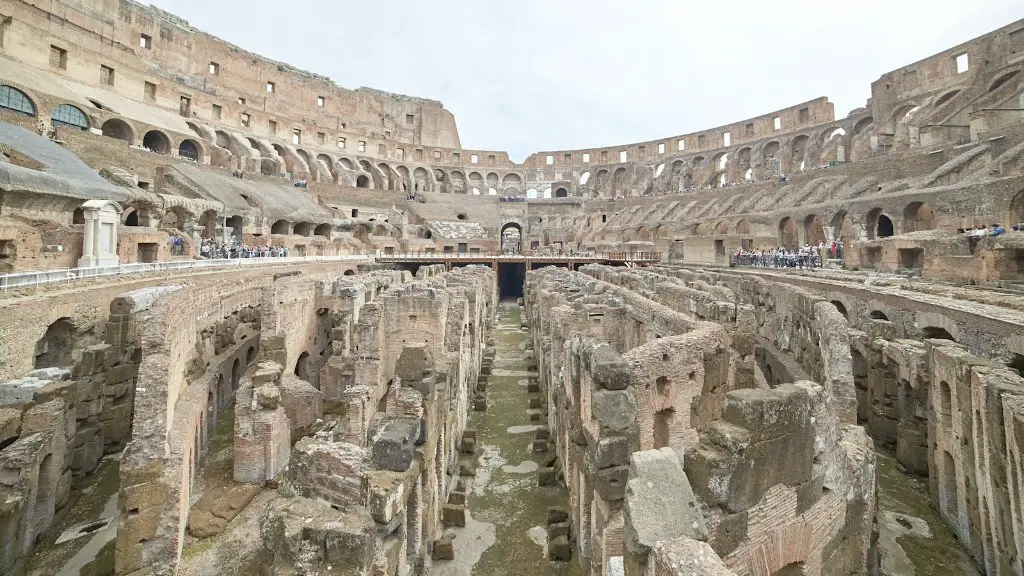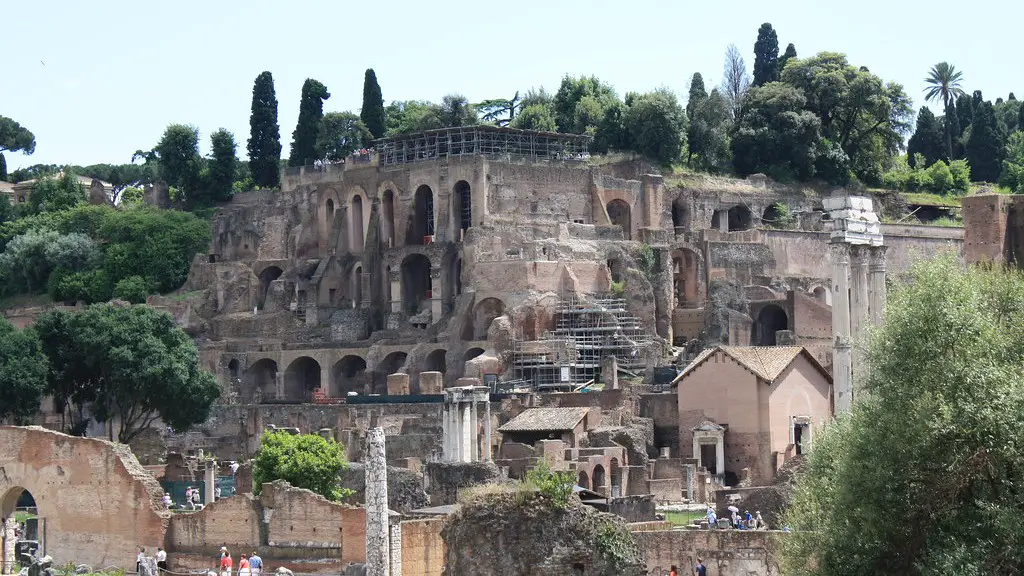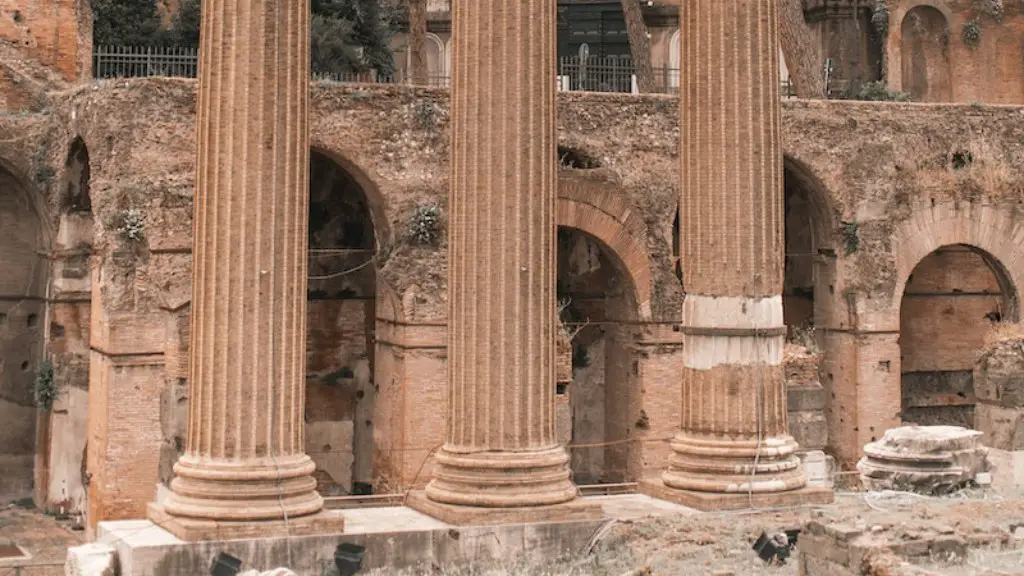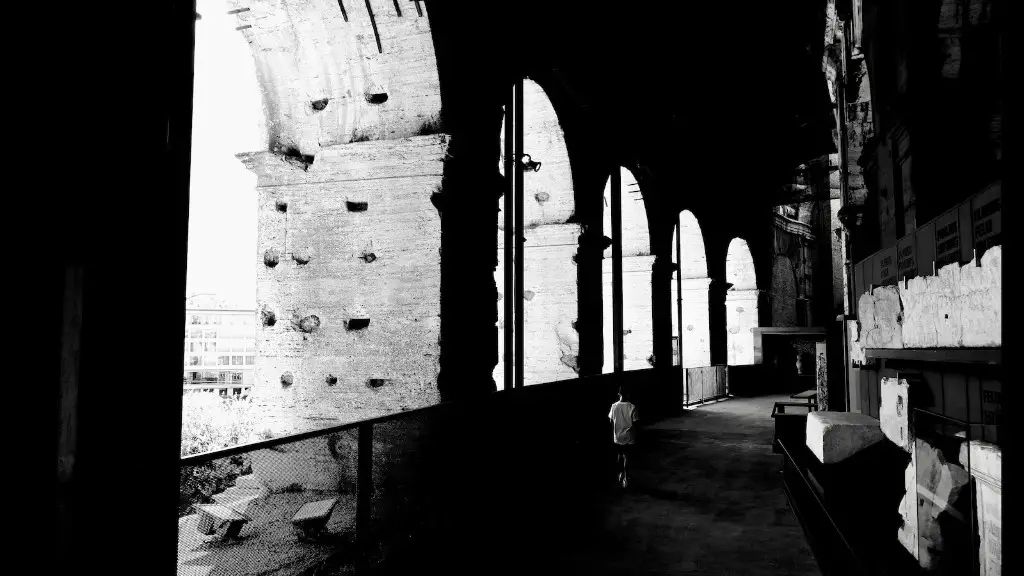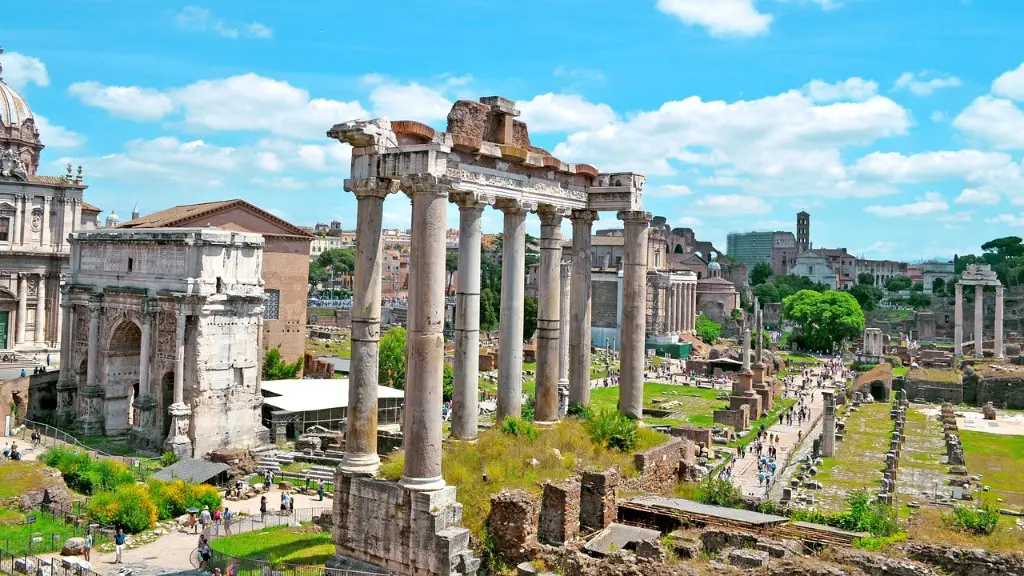Religion was an important part of the ancient Roman world. Ancient Romans believed in many gods and goddesses, and often venerated them in temples and other places of worship. The religious system of ancient Rome was overseen by a variety of people, all of whom held important positions in society. In this article, we will explore who these overseers of religion were and how their roles affected the lives of the Roman people.
At the highest level were the Pontifices. This group of priests featured members from the patrician class of Roman society, and their primary roles included offering advice and guidance to the Roman Senate, presiding over religious ceremonies, and interpreting the laws of the gods. They were also responsible for keeping official records of important religious events and festivals.
Next in line were the Augurs. This group of priests was responsible for performing divination and sacrificing animals, typically chickens and ewes. This was intended to bring the will of the gods to the attention of men. They also assisted the pontifices in interpreting divine laws and had the power to advice the Senate on religious matters.
The Vestal Virgins were another important and respected priesthood in ancient Roman society. This group of priestesses were chosen from among the daughters of noble families, and their primary role was to tend to the Vestal Flame which was housed in the Temple of Vesta in Rome. This flame represented the state of the city and its continued success, so the Vestal Virgins were seen as wardens of a sort, watching over the flame to ensure it did not go out.
Not all priests and priestesses of Rome were Roman citizens. The Flamines were foreign priests, often originally from Greece or Egypt, who carefully tended to the cult of a specific deity. They were not admitted to the Pontifical College and did not technically have the authority to offer religious advice to the Senate, but they could guide people in matters relating to the deity they served.
In addition to these religious figures, the people of Rome also had a variety of other religious professionals. Priests of traditional Roman religion, such as the Salii, performed important religious ceremonies, whilekeepers of the religion were also present throughout the city. These were typically identified by the name “priest” or “pontifex”, and they were responsible for overseeing the cults of individual gods within the community.
In addition to the people listed above, there were a variety of other professionals who held important roles in ancient Roman religion. Lectors, or “teachers” of the gods, read and interpreted religious books and texts, while augers were consulted when trying to discern the will of the gods. Soothsayers would also offer their services to interpret the divine will, and astrologers could offer advice about the timing of important events.
Popularity of religion in Ancient Rome
Religion was an important and central part of ancient Roman life. Citizens of Rome proudly and actively participated in the religious practices of the city, and it was common to join in festivals and make offerings to the gods. Religion was also seen as a way of impressing upon the people the importance of law and morality; it was believed that if people worshipped the gods and followed the religious customs, their society would remain strong and prosperous.
Religious practices in Ancient Rome were often quite elaborate, with many ceremonies and public displays of piety. Public festivals were celebrated on important dates and holidays, while individual citizens took part in private rituals and offerings. It was even believed that certain ceremonies and offerings could improve the lot of the individual; for example, offerings were made to the gods in hopes of a good harvest, or in hopes of a successful journey.
As the world around them changed and cultures clashed, the Romans were far from isolated in their religious practices. In addition to their own gods and practices, the Romans incorporated practices from other cultures, often adapting existing gods and rituals to fit their own needs. This meant that religious practices in Ancient Rome were plentiful and varied, making for a vibrant and deeply religious society.
Decline of Religion in Ancient Rome
The decline of religious worship in Rome began with the introduction of Christianity. Though initially loved by the upper echelons of society, it quickly became the more popular faith among the masses, with the pagan gods and rituals relegated to little more than folklore. Though some Romans still practiced traditional religions, Christianity proved too powerful to be denied, and eventually it became the official religion of the Empire in the fourth century CE.
The decline of the Roman religion was also hastened by the fact that it was largely a religion without texts. There were rites and practices, of course, but without a core set of doctrines or beliefs, there was no way to know for sure what was expected of the faithful. This lack of clarity caused religion in Ancient Rome to be relatively open and flexible, which allowed it to adapt and change with the times. This helped to make it more open to outside influences, and thus allowed for the growth of Christianity within the Empire.
It is also important to note that the Roman religion was not really a true “religion” in the sense that it did not offer a unified set of beliefs or spiritual practices. Unlike the eastern and western religions that came to dominate the world in the centuries that followed, Roman religion was instead a set of traditional practices and beliefs. It served as a way of organizing and keeping a large population together, rather than providing a unified system of belief or a deep spiritual connection.
Legacy of Ancient Roman Religion
Today, the legacy of Ancient Roman religion can still be seen in various parts of the world. Traditional Roman gods and goddesses are still venerated by the people of the Mediterranean and elsewhere, often under the guise of other religious traditions. Even in Christianity, aspects of Ancient Roman religion still linger, such as the veneration of saints, which was adopted from the cult of traditional Roman gods.
The philosophy of Ancient Roman religion was also upheld in various ways. The importance of law and morality was instilled in the highly structured society, and this set a precedent for centuries to come. Moreover, a sense of the divine and of an afterlife were essential elements of Roman religion, and even today, people believe in the existence of gods or a higher power and an afterlife.
The influence of Ancient Rome’s religious practices and beliefs continues today, and its legacy is evident in the many religious organizations, temples and shrines around the world. Though Roman religion has long been out of practice, its influence still remains.
Impact of Ancient Roman Religion in the present day
Today, the legacy of Roman religion is evident in many aspects of modern society. From the Catholic Church to the Orthodox Church, Roman religious beliefs and practices have formed the foundation for many of the world’s religious organizations. In terms of rituals, many Roman religious ceremonies and traditions are still practiced today, such as the honoring of the dead, the making of sacrifices, or the exchange of gifts.
Even the gods and goddesses still have an influence in today’s society, though often they are just symbols of certain qualities. For example, Mars is often used as a symbol of military power, while Jupiter represents justice and governance. Similarly, gods and goddesses such as Venus, Minerva, and Juno are still venerated in some cultures, and their characteristics are even used to this day to describe various aspects of society.
Roman religion was also an important part of the political and social structure of ancient Rome. The citizens of Rome followed the laws laid down by the gods and goddesses, and their abundance of religious festivals and events kept the citizens unified. Similarly, the gods and goddesses were often used as a part of propaganda by Roman leaders, who would invoke their power to reinforce their own authority.
Although Roman religion is no longer practiced in the same way it was in Ancient Rome, its influence is still felt in many aspects of our modern lives. From religious organizations to symbols of power and justice, it is clear that the legacy of Roman religion will continue to be felt for centuries to come.
Summary
Ancient Roman religion was characterized by its pantheon of deities, elaborate ceremonies and festivals, and a complex system of priests, priestsesses and religious professionals. This system of religion was overseen by a variety of people, such as the Pontifices and Augurs, who held powerful positions in society and had the authority to interpret the laws of the gods.
Religion was an important part of the ancient Roman culture, with citizens actively participating in various rituals and festivals, and often making offerings to the gods in hopes of success. Christianity eventually became the most popular faith among the masses, and with the lack of a unified set of beliefs and spiritual practices, Roman religious practices began to decline.
Though Roman religion is no longer practiced in the same way, its legacy is still evident in the many churches and temples around the world. Its influence can be seen in many aspects of modern society, such as religious organizations, symbols, rituals and beliefs. Even today, the gods and goddesses of ancient Rome continue to be revered and revered.
